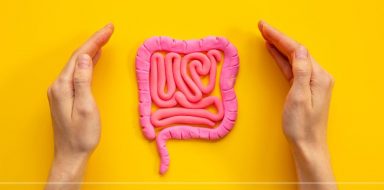Overactive Bladder Before Period
Overactive bladder affects many women, causing more frequent or urgent urination than usual. Some women only experience overactive bladder before period, and others might find that their cycle makes existing symptoms worse.
So, what causes an overactive bladder before a period? We explain some of the possible reasons, the symptoms of this condition, and how to cope with it.
What Causes People to Have an Overactive Bladder Before Their Period?
Women of reproductive age undergo a series of hormonal changes every month. They can lead to various symptoms, ranging from mood swings to migraines. But what about overactive bladder?
This condition is not typically thought of as being influenced by hormones, but research suggests they may play a role.
For example, a 2008 study surveyed 133 women with urinary symptoms. It found that 41% of the participants thought their cycle played a role. Of these women, 42% said their symptoms were worse just before menstruation.
The researchers then viewed the participants’ urinary systems using a technique called video cystourethrography. They found that abnormal bladder activity increased significantly with time from the previous period. The authors of the study hypothesized that increased progesterone levels may be involved.
Other Medical Conditions
Certain medical conditions can also cause an overactive bladder before a period. A 2015 study focused on interstitial cystitis, which causes frequent, urgent and sometimes painful urination. Of the 100 female participants, 65% were currently having menstrual cycles. Among these women, 74% reported that their cycle affected their symptoms. Furthermore, 75% said they were worst in the week before their period.
Another condition that could potentially cause an overactive bladder before a period is endometriosis. It causes the type of tissue that normally grows inside the womb to develop elsewhere in the body. Then, during menstruation, this tissue “bleeds” causing pain and other symptoms.
Bladder endometriosis is rare and does not always cause urinary dysfunction. However, approximately 70% of women with the condition experience urinary frequency and pain.
To summarize, some potential causes of overactive bladder before a period include:
- Hormonal changes
- Interstitial cystitis
- Bladder endometriosis
Now, lets look at some of the symptoms of these conditions in more detail.
Although OAB in men is chronically undertreated, it doesn’t have to hold you back. Be proactive in your health by looking out for warning signs.
Symptoms of Overactive Bladder Before a Period
The exact symptoms of an overactive bladder depend upon the underlying cause. Both interstitial cystitis and bladder endometriosis can cause similar symptoms. They include:
- Needing to urinate more frequently and urgently than usual
- Needing to urinate during the night
- Pelvic pain
- Pain when the bladder is full
- Pain during sexual intercourse
Both conditions’ symptoms can be affected by the menstrual cycle, although this is not always the case for interstitial cystitis. Furthermore, bladder endometriosis can cause additional symptoms, including blood in the urine and lower back pain.
Coping with an Overactive Bladder Before a Period
The best ways to cope with an overactive bladder also depend upon the cause. Women with a permanently overactive bladder may consider medication or other treatments like electrical nerve stimulation, Botox, or surgery.
But for those who only experience an overactive bladder before a period, such extreme measures may be unnecessary. Of course, underlying conditions such as endometriosis or interstitial cystitis will require medical treatment. However, in many cases, making some simple lifestyle changes may be enough.
Here are some general tips for coping with an overactive bladder:
Drink the Right Amount of Water
Drinking too much water can make an overactive bladder worse. However, not drinking enough can be equally problematic. Individuals suffering from urinary frequency or urgency should consult a physician to determine exactly how much water they should aim to drink each day.
Avoid Alcohol, Caffeine, and Fruit Juice
Alcohol, caffeine, and acidic fruit juice can all irritate the bladder and their consumption should be kept to a minimum. Even foods like tomatoes can cause problems for some people.
Reduce Fluid Consumption Throughout the Day
Drinking too much during the evening can increase the likelihood of having to urinate during the night. Therefore, it is best to reduce fluid consumption throughout the day, especially drinks containing alcohol or caffeine.
Maintain a Healthy Body Weight
Being overweight can put extra pressure on the bladder and increase the risk or urinary symptoms. Maintaining a healthy weight is also essential for our overall wellbeing, so eating well and staying physically active are key.
Stop Smoking
The chemicals in cigarette smoke can irritate the bladder and make urinary symptoms worse. Fortunately, there are now many different treatment options that can help smokers to quit. Ask a physician or pharmacist for further advice.
Retraining the Bladder
It is possible to reduce overactive bladder symptoms by gradually retraining the bladder. There are several methods for doing this, including delaying urination by a few minutes each time or scheduling bathroom breaks throughout the day. It is best to undertake bladder retraining under the supervision of a physician or other qualified healthcare professional.
Kegel Exercises
Performing Kegel exercises is one of the best ways to strengthen the pelvic muscles and reduce overactive bladder symptoms. To begin with, identify the correct muscles by imagining stopping urinating mid-stream. Then, with an empty bladder, contract these muscles for three seconds, relax for three seconds, and repeat. Aim to perform 10 repetitions, three times a day.







